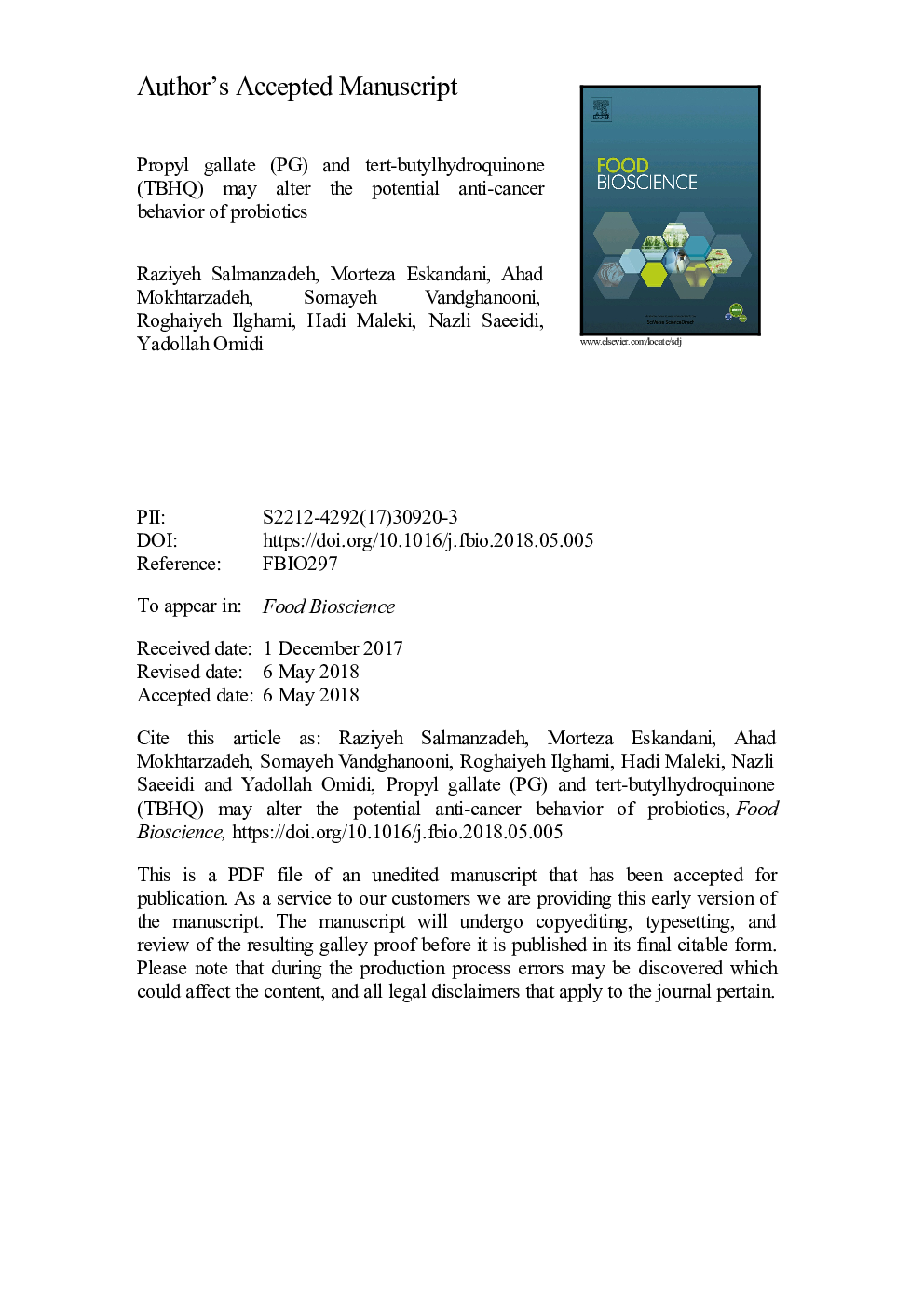| Article ID | Journal | Published Year | Pages | File Type |
|---|---|---|---|---|
| 6488750 | Food Bioscience | 2018 | 37 Pages |
Abstract
The effects of antioxidant food additives on the anti-proliferative properties of probiotic bacteria and their subsequent effects on the growth of cancer cells were studied. Propyl gallate (PG) and tert-butylhydroquinone (TBHQ) were selected as the antioxidant, and Lactobacillus rhamnosus was used as the probiotic model. L. rhamnosus bacteria were exposed to PG and TBHQ and their resistance was assessed. Afterwards, the cell-free supernatants (CFS) of untreated bacteria (CFSU), PG treated bacteria (CFSP) and TBHQ treated bacteria (CFST) were isolated. The human colorectal adenocarcinoma cell line HT-29 was then exposed to isolated CFS and subjected to geno- and cytotoxicity assays and annexin V-fluorescein isothiocyanate (FITC) apoptosis/necrosis detection evaluation. The 3-(4,5-dimethylthiazol-2-Yl)-2,5-diphenyltetrazolium bromide (MTT) assay showed that CFSP and CFST were able to inhibit HT-29 growth with IC50 values of 70 and 120â¯Î¼g/mL at 24â¯h, respectively, whereas CFSU showed no significant toxicity. DNA fragmentation was observed in the CFSP and CFST treated HT-29 cells, shown using 4â²,6-diamidino-2-phenylindole dihydrochloride (DAPI) staining. An annexin V flow cytometry assay showed that the cells treated with CFSP and CFST resulted in 35% and 32% apoptosis, respectively. The qPCR results showed that the expression of pro-apoptotic caspase 9 gene was significantly increased in CFSP and CFST treated HT-29 cells compared with CFSU treated cells (Pâ¯â¤â¯0.05), whereas the expression of the pro-survival Bcl-xL gene was downregulated in the CFSP and CFST treated cells compared with CFSU treated cells (Pâ¯â¤â¯0.05). In conclusion, different food additives may affect the metabolomics of probiotics, which could subsequently influence human health.
Keywords
Related Topics
Physical Sciences and Engineering
Chemical Engineering
Bioengineering
Authors
Raziyeh Salmanzadeh, Morteza Eskandani, Ahad Mokhtarzadeh, Somayeh Vandghanooni, Roghaiyeh Ilghami, Hadi Maleki, Nazli Saeeidi, Yadollah Omidi,
